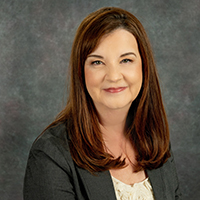- Children and Young Adults
- Dissemination and Implementation
- Engagement in Care
- HIPxChange
- Quality and Safety
- Stakeholder Engagement
- Systems Engineering
Lead Investigator
Resources
For more information, please contact Dr. Elizabeth Cox at ecox@pediatrics.wisc.edu
Toolkit
In the News
Other
Areas of Impact
Overview
To protect children while they are hospitalized, we have enhanced both family engagement and the safety of care for over 13,000 children admitted each year to the hospital through the implementation of the stakeholder-driven Family-Centered Rounds Checklist. The checklist is being implemented in the UW American Family Children’s Hospital and Akron Children’s Hospital in Ohio, and planned for implementation in additional health systems across the country.
The Clinical Problem
Family-centered care has many benefits, including improved clinical outcomes, increased patient and family engagement and satisfaction, and more effective use of health care resources.
In the hospital setting, one way to achieve these benefits is through family-centered rounds (FCR) at the bedside. In fact, the American Academy of Pediatrics recommends FCRs as part of its policy statement on the pediatrician’s role in patient- and family-centered care. Despite their benefits, FCRs can be challenging to operationalize at the institutional level.
Our Response
A multidisciplinary group of family representatives, pediatric health professionals, and researchers led by Dr. Elizabeth Cox developed a checklist that reminds clinicians of the important elements to ensure effective family-centered rounds.
“The checklist has helped to provide a framework for our staff with the key elements that are really important for patient safety and also for patient satisfaction.” — Barbara Byrne, DNSc, Vice President of Clinical Operations, American Family Children’s Hospital
The FCR Checklist elements include:
- Ensure the nurse is present
- Check family preference for rounds
- Ask if the family knows everyone on the team
- Discuss with the family the patient assessment and plan for the day
- Review and update goals for discharge
- Ask the family and the team for questions
- Read back orders
Dr. Cox’s team then examined the impact of the checklist intervention in a randomized clinical trial of 298 families of children hospitalized at American Family Children’s Hospital (AFCH).
Results
The results of the study, which were published in Pediatrics, clearly demonstrate the FCR intervention’s effectiveness. Completion of the checklist items increased significantly on the services using the FCR Checklist.
Total checklist elements performed by the intervention group (mean)
Two of the checklist items significantly increased family engagement: when the health care team read back orders, families provided more information and engaged in more decision making, and families also engaged more when the team talked about goals for discharge.
The elements that increased engagement have positive quality and patient safety implications. When prompted, 51 percent of families and 33 percent of healthcare teams had at least one question about the child’s care.
“The study indicates that the checklist can effectively promote consistent delivery of high-quality, family-centered pediatric inpatient care.” — Elizabeth Cox, MD, PhD, Associate Professor of Pediatrics, UW School of Medicine and Public Health
Completion of particular FCR checklist elements improved parent perceptions of safety. Asking the family for questions significantly increased parents’ views of staff communication openness, and giving an assessment of children’s progress or asking the family if they had any questions significantly increased parents’ perceptions of the safety of handoffs and transitions.
Lasting Impact
We have enhanced both family engagement and the safety of care for over 13,000 children admitted each year to the hospital through the implementation of the stakeholder-driven FCR Checklist. The checklist is being implemented in the UW American Family Children’s Hospital and Akron Children’s Hospital in Ohio, and planned for implementation in additional health systems across the country.
The Centers for Medicare and Medicaid Services recommended the FCR Checklist and associated implementation materials as a resource for supporting effective family engagement in healthcare settings broadly (Partnership for Patients (PfP) Strategic Vision Roadmap for Person and Family Engagement (PFE), 2016).
The project team has developed free toolkits that outline how to implement FCRs effectively and sustainably. Two versions of “The Family-Centered Rounds Toolkit” are available: one for clinicians/health care organizations and one for researchers.
- The toolkit for clinicians includes the FCR Checklist, a training curriculum and supporting materials, data collection tools for performance assessment, and a model for offering maintenance of certification (MOC) credit.
- The toolkit for researchers includes methodological information about the development and implementation of the FCR Checklist. It’s also useful for organizations that wish to identify their own specific needs with regard to FCR implementation.
Over 300 individuals from around the world have downloaded the FCR toolkit. The toolkit and the related research has been featured in a Society for Hospital Medicine webinar and posted on PatientFamilyEngagement.org, the AHRQ Innovations Exchange, and the AAMC’s MedEdPortal.
The toolkits and testimonials about the benefits of the FCR Checklist are publicly available for free at https://www.hipxchange.org/familyrounds, and the American Family Children’s Hospital website includes information and videos about the value of FCRs for patients and families during their stays.
References
- Cox ED, Hansen K, Rajamanickam VP, Brown RL, Rathouz PJ, Carayon P, DuBenske LL, Buel LA, Kelly MM. Are Parents Who Feel the Need to Watch Over Their Children’s Care Better Patient Safety Partners? Hosp Pediatr. 2017 Dec;7(12):716-722.
- Cox ED, Jacobsohn GC, Rajamanickam VP, Carayon P, Kelly MM, Wetterneck TB, Rathouz PJ, Brown RL. A Family-Centered Rounds Checklist, Family Engagement, and Patient Safety: A Randomized Trial. Pediatrics. 2017;139(5):e20161688.
- Cox ED, Carayon P, Hansen KW, Rajamanickam VP, Brown RL, Rathouz PJ, Dubenske LL, Kelly MM, Buel LA. Parent perceptions of children’s hospital safety climate. BMJ Qual Saf. 2013;22(8):664-71.

